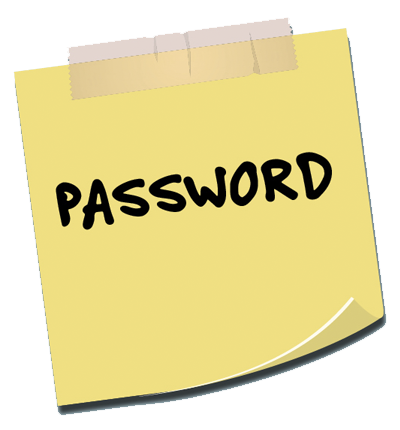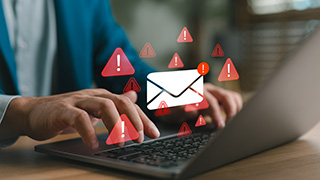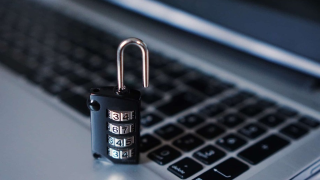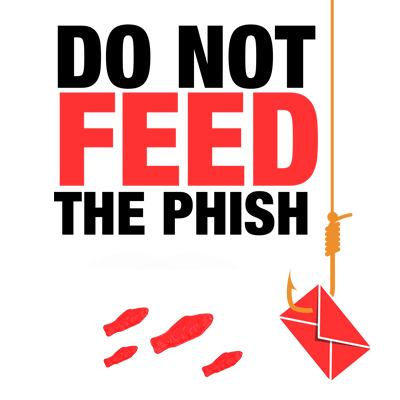
October is National Cybersecurity Awareness Month
The internet can be a dark and spooky place. Malware, identity theft, phishing and other tricks can steal your time, money, and even your identity. The Department of Information Technology is here to bring you technology treats throughout the month of October, Cybersecurity Awareness Month.
National Cybersecurity Awareness Month is a great time to learn about the need for computer security, your role in keeping your devices and applications secure, and tips for protecting your identity and the university's data. Each week, the Department of Information Technology will share a critical aspect of cybersecurity on the web, on campus and in direct email communications.
Throughout the month of October, Seton Hall's IT Security team will host a fun, interactive cybersecurity quiz in the University Center from 10:30 a.m. to 1 p.m. on September 29–30, October 2, October 9, October 20–21, October 23 and October 27–28. Participants can earn raffle entries for prizes like earbuds, noise-cancelling headphones, portable monitor, and more, with a spin of the wheel determining additional entries.
Cybersecurity Awareness Month Topics

Week 1: Password Security
- Use at least 14 characters; the more characters, the better.
- Don't re-use the same password on multiple websites or accounts.
- Make your password easy for you to remember but hard for someone else to guess. Picking letters from a phrase that's meaningful to you may be the source for a good password.
- Never provide your password over e-mail or based on an e-mail request. Any email that requests your password is almost certainly a fraud.
- Protect any recorded passwords. Be careful where you store the passwords that you record or write down.

Week 2: Duo Two-Factor Authentication
- Add an extra layer of security to your account.
- Authenticate in one click by setting up the "push" option.
- Prevent hackers from gaining access to your account, even if they know your password. Always check the information on the push screen before approving.
- When in doubt, click deny.

Week 3: Phishing and Data Protection
- Be cautious of unexpected emails, texts or job offers, especially those asking for personal or financial information. Look for red flags like misspellings, urgent language or suspicious links.
- Scammers use multiple tactics including email phishing, spear phishing, smishing (text), vishing (voice) and malicious QR codes. Knowing these makes them easier to spot.
- Faculty and students handling sensitive information should take extra care. Safeguard intellectual property, unpublished research and confidential records from theft or misuse.
- Hover over links before clicking, confirm sender addresses and when in doubt, contact the Technology Service Desk before sharing information or opening attachments.

Week 4: Device Security
- Do not leave laptops, tablets or mobile devices that may contain personal information where others have access to them.
- Do not connect to any insecure wireless networks from your smart phone, tablet or handheld devices.
- Regularly update your device software to ensure security patches are applied.
- Always use a strong password or biometric lock on your devices to prevent unauthorized access.
- Immediately report lost or stolen laptops or devices to the Technology Service Desk or local authorities.

Week 5: Cyber Trick or Treat
- Stay vigilant during the shopping season and learn how to distinguish between legitimate discount emails and scams.
- Stick to secure payment methods like credit cards or services such as PayPal, which offer buyer protection. Avoid using wire transfers or prepaid gift cards.
- Verify deals that seem too good to be true by visiting the retailer's official website directly.
- Regularly check your bank and credit card statements for any unauthorized or suspicious transactions, especially after making online purchases.
Cybersecurity Programs and Resources at Seton Hall University
Seton Hall University is proud to offer a wealth of academic programs, events and resources to prepare students for a successful career in cybersecurity and to further strengthen this in-demand skillset among experienced professionals.- B.S. in International and Homeland Security
- Undergraduate Certificate in Cybersecurity
- Undergraduate Minor in Cybersecurity
- M.S. in Data Science and Engineering
- M.S. in Homeland Security and Cyber Resilience
- Graduate Certificate in Data Analytics (online)
- M.S.J. in Privacy Law and Cyber Security (online)
- Graduate Certificate in Privacy Law and Cyber Security (online)
- Data Privacy and Security Compliance Certificate Program (online)
- Cybersecurity Basics Professional Development Certificate Program (online)
- Cybersecurity for Executives Professional Development Certificate Program (online)
- Cybersecurity in Digital Business Professional Development Certificate Program (online)

